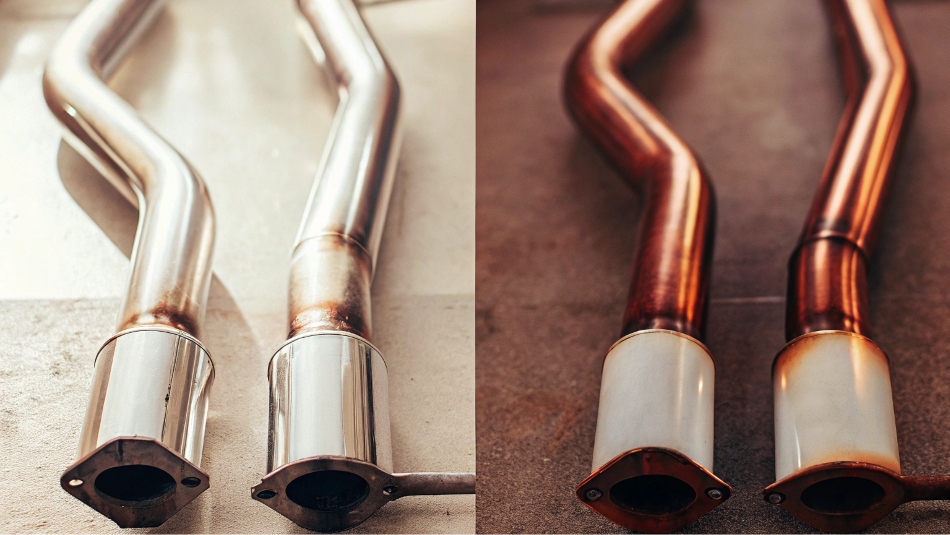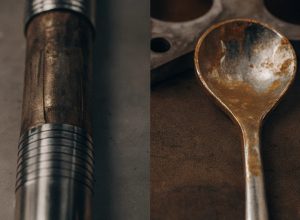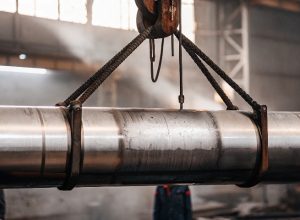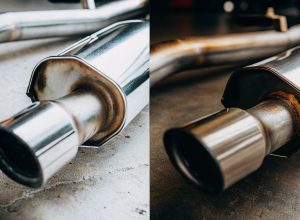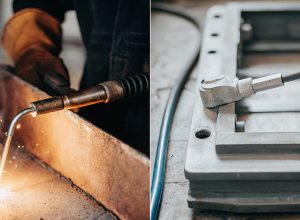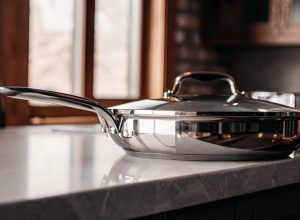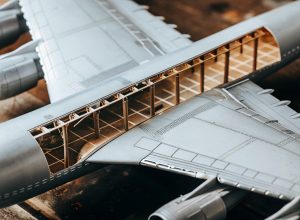Your car deserves the best performance. But the wrong exhaust material can be a costly mistake. Let’s compare titanium and stainless steel to find your perfect match.
Titanium exhausts offer significant weight reduction and superior heat dissipation, making them better for high-performance applications. Stainless steel provides excellent durability and corrosion resistance at a much lower cost, making it a better all-around choice for daily drivers and budget-conscious builds.
So, you see the basic trade-offs. But there’s more to it than just weight and cost. The details really matter, especially when you’re talking about sourcing materials for clients like Ahmed in Turkey, who need to stock the right grades for his distribution business. Let’s break it down further. Diving into the specifics will help you understand why certain manufacturers choose one over the other.
Is a titanium exhaust better than stainless steel?
You want to unlock your car’s full power. A heavy exhaust system robs you of performance and adds unnecessary weight. Titanium offers a clear advantage for true enthusiasts.
For racing and high-performance vehicles, titanium is better due to its incredible strength-to-weight ratio. It can be up to 40% lighter than steel. This weight saving improves handling, acceleration, and fuel efficiency. It also gives a unique, exotic exhaust note1.
Let’s explore why high-end automakers choose titanium. I often consult with European clients who supply parts for brands like Porsche and Lamborghini. They consistently prioritize titanium for their performance models.
Unmatched Weight Savings
The primary benefit is weight. A full stainless steel exhaust system can be surprisingly heavy, often weighing over 20 kilograms. Shaving off that weight with titanium improves the car’s power-to-weight ratio. This leads to faster acceleration and more nimble handling. For a distributor like Ahmed, stocking lightweight Grade 5 titanium tubing means he can cater to the high-performance tuning market, a very profitable niche that demands the best materials.
Superior Heat Management
Titanium also handles heat differently. It dissipates heat much faster than steel. This helps lower temperatures in the engine bay, protecting sensitive electronic components and improving overall engine efficiency. Less heat soak means more consistent power delivery, especially during extended sessions on a racetrack. This is a critical factor for motorsport applications.
Tangible Performance Gains
Combining these factors translates into real-world performance. A freer-flowing, lighter exhaust system reduces engine backpressure. This allows the engine to breathe better, resulting in a noticeable increase in horsepower and torque. It’s not just about a cool sound; it’s about measurable improvements that performance drivers can feel.
What are the disadvantages of titanium exhaust?
Titanium seems like the ultimate upgrade. But its high price isn’t the only drawback. Hidden issues like cracking can ruin your investment if you’re not careful. Let’s look closer.
The main disadvantages are its high cost and difficulty to weld. Titanium is much more expensive than stainless steel. It also requires specialized TIG welding with argon gas shielding to prevent cracking, increasing manufacturing complexity and cost. It can be more brittle than steel.
The benefits of titanium are clear, but the drawbacks are just as important to understand. This is where my job gets specific. I help clients avoid these very problems by focusing on material quality and manufacturing processes.
The High Cost Factor
There’s no getting around it: titanium is an expensive raw material. The process of extracting and refining it is energy-intensive and complex, which drives up its base price. This cost is passed down through the entire supply chain. It starts with me sourcing the certified billets, to Ahmed stocking the finished tubes in Turkey, and finally to the end customer. This high cost is the single biggest barrier for most people considering a titanium exhaust.
Specialized Manufacturing Challenges
Titanium is not as forgiving as steel during fabrication. It must be welded in a very controlled, oxygen-free environment. You need to use TIG welding and back-purge the inside of the pipes with argon gas to protect the welds from contamination. Bad welds become brittle and will quickly crack from engine vibrations and heat cycles. This is why I always insist my partners use certified Grade 2 or Grade 5 titanium with full material traceability. It guarantees the alloy is correct and has been handled properly from the start.
Material Brittleness and Fatigue
While very strong, titanium can be more susceptible to fatigue cracking over long periods, especially if the welds are poor or the design isn’t robust. The constant heating and cooling of an exhaust system puts immense stress on the material. Proper engineering, using flexible joints, and selecting the right wall thickness are critical to ensure the exhaust has a long service life.
Which metal is best for exhaust?
Everyone wants the "best" exhaust. But choosing the wrong "best" means overspending or getting a system that fails to meet your needs. Let’s match the metal to the mission.
There is no single "best" metal. Titanium is best for racing and high-performance applications where weight is critical. High-grade stainless steel (like 304 or 321) is best for most street cars, offering a great balance of durability, corrosion resistance, and affordability.
The real question isn’t "which is best," but "which is best for you?" Your application defines the ideal material. I advise clients like Ahmed to carry both titanium and multiple grades of stainless steel to serve different segments of the automotive market. This way, he can meet the needs of all his customers. Let’s compare them directly.
Best for the Racetrack: Titanium
For pure, uncompromised performance, titanium is the undisputed winner. Every gram saved on a race car matters. The significant weight reduction and excellent heat dissipation directly translate to faster lap times and better endurance. For motorsport teams and serious enthusiasts, the high cost is justified by the competitive edge it provides.
Best for the Street: Stainless Steel
For a daily driver or a modified street car, stainless steel is usually the smarter choice. It resists rust and corrosion from road salt and moisture far better. It’s tough, durable, and handles the vibrations of daily driving well. The cost savings are significant, allowing you to spend money on other important upgrades.
Material Comparison Table
| Feature | Titanium (Grade 2/5) | Stainless Steel (304) |
|---|---|---|
| Weight | Very Low | Moderate |
| Cost | Very High | Moderate |
| Heat Dissipation | Excellent | Good |
| Corrosion Resistance | Excellent | Very Good |
| Welding Ease | Difficult | Easy |
| Best For | Racing/High-end | Street/All-around |
This simple table helps my clients quickly explain the key trade-offs to their customers, making the sales process more effective.
Is it better to get titanium or stainless steel?
The final decision is here. Choose wrong, and you’ll either feel buyer’s remorse over the cost or disappointment in the performance. Let’s simplify the choice with a clear checklist.
Get titanium if your budget is high and your primary goal is maximum weight reduction for racing or a show car. Get stainless steel if you need a durable, corrosion-resistant, and cost-effective exhaust for a daily driver or modified street car.
To make the right choice, you just need to be honest about your own needs. As a supply chain consultant, I walk procurement teams and distributors through these same decision-making questions to ensure they stock the right materials for their customers.
What is your budget?
This is the first and most important question. A full, high-quality titanium exhaust system can cost three to five times more than a comparable stainless steel one. If the price of titanium makes you pause, then stainless steel is the logical and excellent choice. It provides most of the performance and sound benefits for a fraction of the cost. You get a fantastic return on your investment.
What is your primary goal?
Are you building a dedicated track car where every ounce matters and you’re chasing every tenth of a second? If so, the performance gains2 from titanium’s significant weight savings are worth the high price. Or are you simply looking for a better sound and improved durability over the original factory system? If that’s the case, a 304 stainless steel system is a fantastic, long-lasting upgrade that will serve you well for years.
How do you use your vehicle?
If you drive your car daily, especially in regions with rain or snow, stainless steel’s excellent corrosion resistance is a huge advantage. It will stand up to road salt and moisture. If your car is a weekend toy or a dedicated racer that avoids bad weather, titanium’s lower durability to road debris is less of a concern. In all cases, the source of the material is vital. I ensure the titanium my partners manufacture is certified to avoid the cracking issues we discussed earlier.
Conclusion
Titanium is for ultimate, lightweight performance at a high cost. Stainless steel offers a fantastic balance of durability, performance, and value for most drivers. Choose based on your budget and goals.

